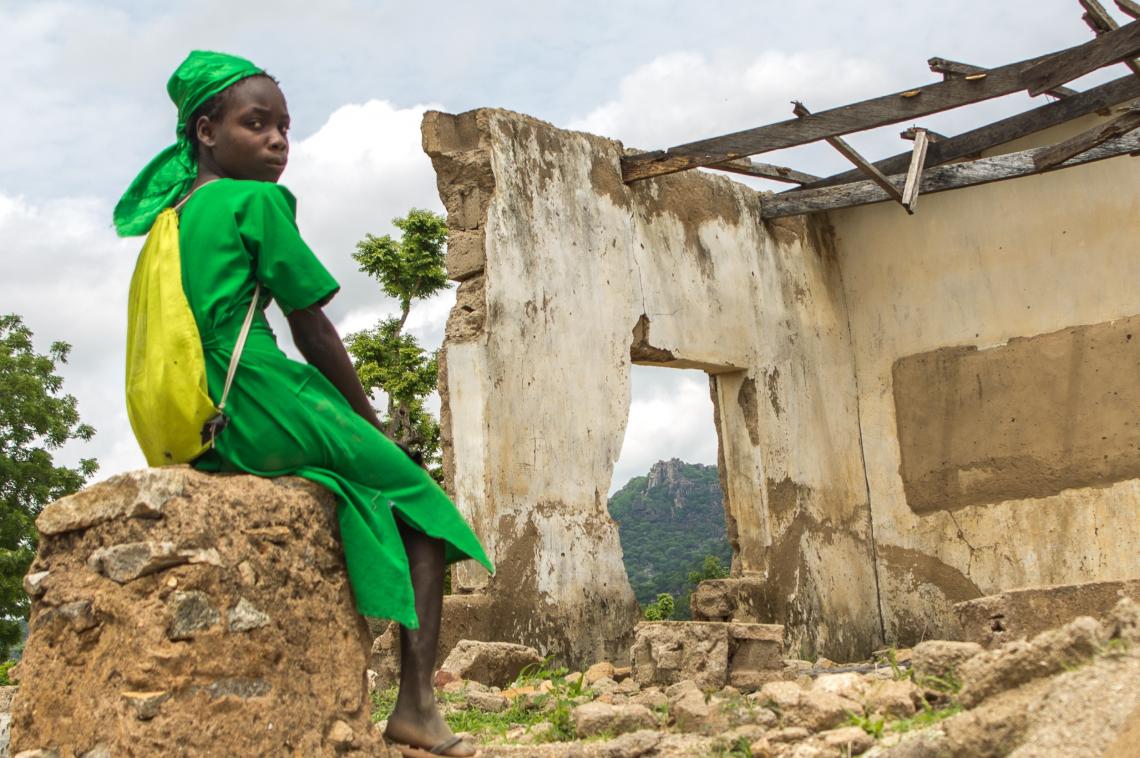Nigeria has an army of 20 million out-of-school children, and 60% are girls. This is too large a number for Africa’s largest democracy and a country that hopes to join the top middle-income economy by 2050.
As bleak as this number is for the whole country, the situation is worse in northern Nigeria; 30% of girls aged 9-12 in the region have never been to school, with states like Kano, Katsina, Bauchi, Jigawa and Kebbi top on the list.
This is too large a number to ignore.
Why are girls not in school?
Nigeria’s female out-of-school rate can easily be tied to poverty, child marriage and patriarchy.
According to the World Bank, poverty determines whether a girl child can access education. In Nigeria, a country with 133 million citizens living in multidimensional poverty, many families struggle to afford school expenses. Consequently, their focus often shifts towards basic survival needs such as food, housing, and clothing, leading to a preference for sending boys to school rather than girls.
In these poor households, girls are made to assist with domestic chores, hawk goods and miss out on school.
Also, girls are married off early to reduce the financial burden on their families. In Nigeria, Every year, 16% of girls are married off before they turn 15 and 43% of girls before their 18th birthday, compared to 3% of their male counterparts. The families of these girls see marriage as a means to raise money and relieve them of the burden they think comes with raising a girl child.
For families who don’t marry off their daughters, the parents refuse to let them go to school because “If she’s going to end up in a man’s kitchen, why should I waste my money in sending her to school? The parents assume that the girl is made to marry and have children, which is not something she needs school for.
The wrong turn?
Nigeria is failing to prepare about half its population for the future by refusing to educate our girls.
According to the World Bank, any year a woman spends in school increases the potential of her earnings to grow from 10% to 20%. The increase in earnings allows women to fend for themselves and financially contribute to the growth of their families.
Also, educating girls will reduce the impact of climate change and make our society more resilient in the face of natural disasters. Gender inequality and the climate crisis collide on multiple fronts- according to the United Nations, 80% of people displaced by climate change and extreme weather conditions are women and girls, and when they go are allowed to school, they are better equipped with the skills and knowledge to handle these crises. They can potentially reduce disaster-related deaths by 60% by 2050.
According to a report by Project Drawdown, empowering women with equal access to education and healthcare could impact greenhouse gas emissions equivalent to the restoration of over 230 million hectares of tropical forest.
On a national scale, a City Insights and Plan International report estimate that Nigeria could expand its GDP by an average of $47 billion by 2030 if it could achieve 100% secondary school completion rates for girls that same year.
Efforts to reverse, but too little
Despite the patriarchal nature of Nigeria and the attendant harm it has caused for girls, there have been efforts, both in policies and laws, to reverse the number of female out-of-school children in Nigeria.
For instance, the Universal Basic Education Act imposed on every government in Nigeria to “provide free, compulsory and Universal basic education for every child of primary and junior secondary, school age” and that “every parent shall ensure that his child or ward attends and completes his primary school education; and junior secondary school education, by endeavouring to send the child to primary and junior secondary schools.”
Also, Section 15 of the Child Rights Act (2007) also right to free, compulsory and universal basic education and imposes on the government the responsibility of ensuring that the child enjoys that right. The Child Rights Act proscribed child marriage and insisted that children attend school.
But these efforts have yielded minimal results as the number of out-of-school girls continues to grow.
Nigeria grapples with 20 million out-of-school children, 60% of whom are girls, a statistic detrimental to its aspiration of becoming a top middle-income economy by 2050. The situation is bleakest in northern Nigeria, where 30% of girls aged 9-12 have never attended school, with states like Kano, Katsina, Bauchi, Jigawa, and Kebbi most affected.
Poverty, child marriage, and patriarchy are key reasons for girls' lack of education. Many families, struggling with basic survival needs, prioritize boys' education over girls'. In poorer households, girls often engage in domestic chores and child labor. Additionally, child marriage is prevalent, with 16% of girls married before age 15 and 43% before 18, as families view marriage as a financial relief.
Parents often dismiss girls' education, believing their primary role is in marriage and child-rearing. This mindset hinders women's potential earnings, which could increase by 10-20% for each year of schooling. Educating girls can also reduce climate change impacts, as women educated are better equipped to handle crises, potentially cutting disaster-related deaths by 60% by 2050.
Nigeria could bolster its GDP by $47 billion by 2030 if it achieves 100% secondary school completion rates for girls. Legal efforts like the Universal Basic Education Act and the Child Rights Act mandate free, compulsory education and prohibit child marriage. However, these measures have had limited success in reducing the number of out-of-school girls.






